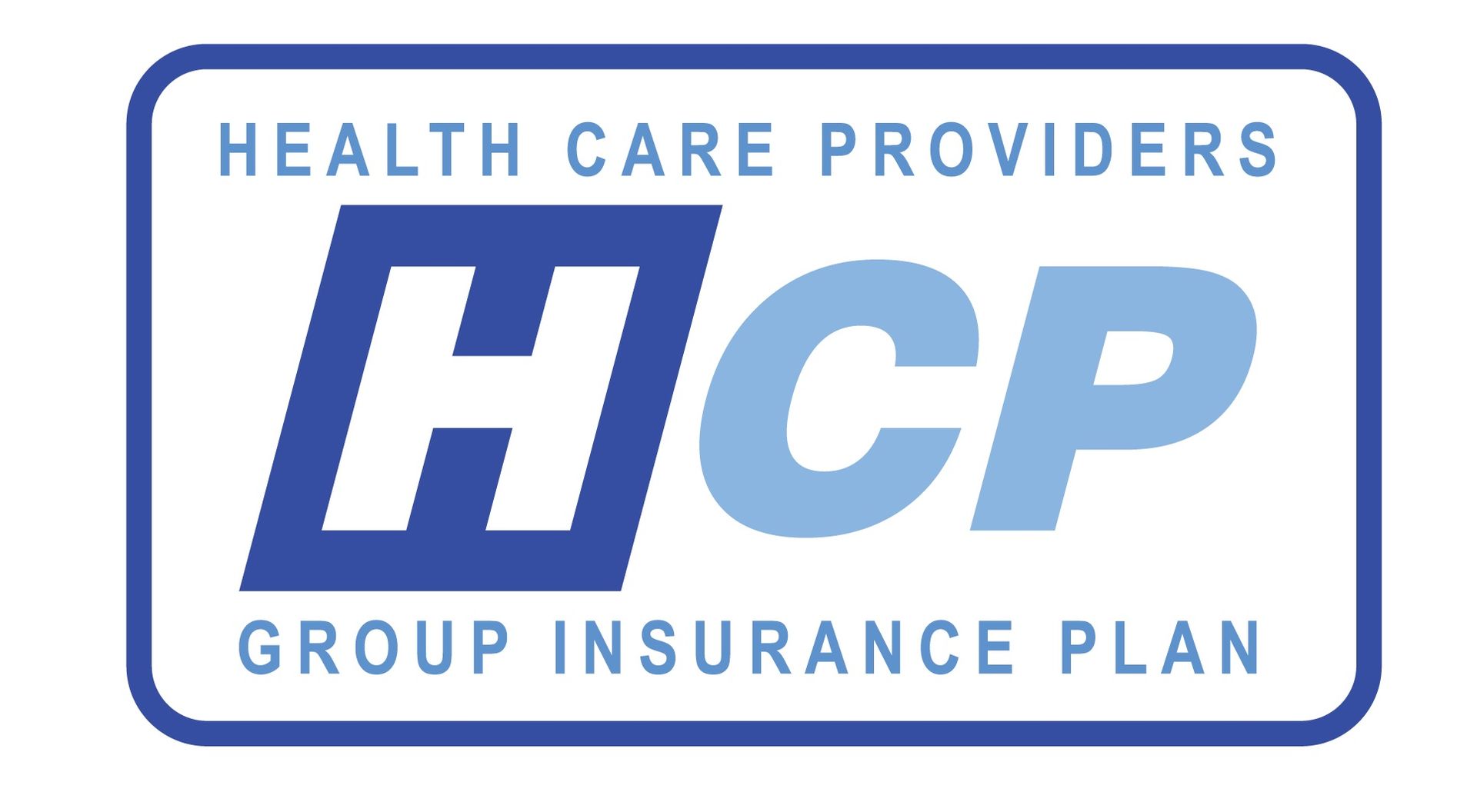RESOURCES

Looking to save money? Here are a few simple tips for HCP members to help keep your benefit plan more affordable. If Your Plan Includes Drug Coverage Dispensing Fees Each time you fill a prescription, the pharmacy applies a dispensing fee, which helps cover costs such as packaging, professional advice, and the pharmacist’s operational expenses. In Ontario, the typical dispensing fee ranges from $5 to $13. This fee directly affects the cost applied to your group plan when you submit a claim. If your plan has a dispensing fee cap (e.g., a $10 maximum), any fees over that cap are paid directly by you. Maintenance Drugs If you're taking a maintenance medication, ask your doctor to prescribe a 3-month supply (the maximum for maintenance drug refills). This way, you'll only pay for one dispensing fee instead of three. Generic Drugs Generic drugs are typically 70% cheaper than their brand-name counterparts, yet they are generally just as effective. The cost difference can range from $70 to $100. Consider asking your doctor if a generic option is available. Additional Savings GreenShield Pharmacy is a free digital service available to all Standard & Supreme plan members, offering personalized support, competitive pricing, lower dispensing fees, and free delivery— all from the comfort of your home. Costco is known for its low prices on both medications and dispensing fees. You don't need a membership to fill prescriptions there—simply inform the staff upon entering that you're there to pick up prescription medications only. Dental Dental fees are reviewed and updated every January. If your HCP plan includes dental coverage, ask your dentist if their charges align with the current fee guide, and then compare it to your dental plan’s coverage to avoid any surprises. If your dentist’s charges exceed the current guide rates, you can inform them that your plan only covers the rates for the current year. The dentist may then adjust their fees to match your coverage. Treatment Plans Before undergoing any costly dental procedures, ask your dentist to submit a pre-authorized treatment plan that outlines the proposed treatment along with a cost estimate. This allows you to know in advance which expenses will or won't be covered, helping you plan accordingly. Paramedical Practitioners Paramedical practitioners, including chiropractors, massage therapists, physiotherapists, and psychologists, typically charge rates suggested by their professional associations. In Ontario, these rates can range from $75 to $280 per visit. By exploring different options in your city, you may be able to find more affordable prices for the same treatment Vision Care When using your Vision Care benefits, consider shopping with trusted Canadian online retailers like Kits.ca or Clearly.ca. They offer stylish, affordable eyewear—often at lower prices than in-store options—and many provide virtual try-on tools and free shipping. Stretch your benefits further without compromising quality or convenience!

When it comes to securing your financial future, many people focus on their retirement savings, health insurance, and other forms of coverage, but one often overlooked aspect is Long Term Disability (LTD) insurance. Unfortunately, accidents or illnesses can strike unexpectedly, and if they do, LTD insurance can help protect you from a severe financial strain. But how do you know how much LTD insurance you should have? The amount you need depends on several factors unique to your situation. Lifestyle: Assessing Your Current Standard of Living One of the most critical factors in determining your LTD insurance needs is your current lifestyle. How much does it cost for you to maintain your standard of living? Consider your daily expenses, housing costs, utilities, food, transportation, and any lifestyle choices that affect your finances. If you were unable to work due to an illness or injury, how much of your current lifestyle would you need to maintain to stay comfortable? LTD insurance should cover the essentials that ensure your financial security and peace of mind during a difficult time. Family Responsibilities: Who Depends on Your Income? Another essential consideration is your family responsibilities. Do you have children, a spouse, or other dependents who rely on your income? Are you a single parent, a non-custodial parent, or caring for aging relatives? In these cases, your LTD insurance should provide enough coverage to support not only your daily expenses but also the needs of your family. If you're the sole breadwinner or play a crucial financial role in your family, LTD coverage becomes even more critical. If you’re unable to work, having sufficient coverage will ensure that your family continues to thrive and meet their needs without unnecessary hardship. Debts: Who Will Cover Your Financial Obligations? Another crucial factor is your debt obligations. What would happen to your mortgage, car loan, credit card payments, or other financial commitments if you couldn’t work? In many cases, these debts can become overwhelming, especially when you're facing the added challenge of a disability. LTD insurance can act as a safety net, covering these ongoing financial obligations and preventing you from falling behind on payments. It’s vital to consider how much you owe and how your financial obligations will change if you can no longer bring in a paycheque. Financial Resources: How Dependent Are You on Your Paycheque? How much do you rely on your paycheque to make ends meet? While many people depend heavily on their regular income, others may have substantial savings, investments, or other resources that could help tide them over. If you have significant financial resources, you might need less LTD coverage. However, it’s important to consider how long your savings or investments would realistically last if you were unable to work for an extended period. For most people, LTD insurance will be vital, even if they have other financial resources. It can provide a cushion for an uncertain future, covering both essential living costs and unexpected expenses that may arise during a long-term disability. If you're unsure about how much excess LTD coverage you may be eligible to apply for or want to explore the best options for your situation, our knowledgeable team is here to help guide you through it all! With HCP’s Signature Package or Supreme Package, eligible part-time and casual employees have access to LTD coverage of $1000 per month in addition to Life Insurance ($10,000) and Accidental Death, Disease & Dismemberment Insurance ($25,000). Contact us today to learn more about how we can help protect your future and provide the peace of mind you deserve.

In the ever-changing landscape of healthcare, professionals face unique challenges that can impact their ability to work. As a healthcare worker, you play a vital role in ensuring that hospitals run smoothly and that patients receive the care they need, but have you considered what would happen if you could no longer fulfill your role due to a disability? This is where Long-Term Disability coverage becomes essential. According to Statistics Canada, the rate of disability in Canada increased from 2017 to 2022. New findings from the 2022 Canadian Survey on Disability (CSD) showed that 27% of Canadians aged 15 years and older, or 8.0 million people, had one or more disabilities that limited them in their daily activities. By comparison, 22% of Canadians, or 6.2 million people, had one or more disabilities in 2017. [1] What is Long-Term Disability Insurance? Long-Term Disability insurance provides financial support when you are unable to work due to a serious illness or injury. Unlike Short-Term Disability coverage, which typically covers a limited timeframe, LTD benefits can last for years, often until retirement age. This means that in the event of an unexpected health crisis, you can focus on recovery rather than worrying about your financial stability. Why is LTD Coverage Important for Part-Time and Casual Hospital Employees? Increased risk of financial instability: Part-time and casual workers often rely on multiple income streams. If an unexpected health issue arises, being unable to work even one of those jobs can create significant financial strain. LTD insurance can help bridge this gap, providing steady income during tough times. Inherent risks of the profession: Healthcare professionals often face physical demands that can leads to injuries. Things like lifting patients, long hours on your feet, and exposure to various health risks are all part of the job. A back injury or chronic condition can leave you vulnerable to perform essential functions, making LTD coverage crucial. Limited employer benefits: Many part-time and casual positions may not offer comprehensive benefits packages. While full-time employees often have access to health insurance, retirement plans, and disability coverage, part-time staff may not have these protections. Investing in your own LTD coverage can help fill this void. Choosing the Right Coverage When considering Long-Term Disability insurance, it’s important to consider your options carefully. Here are some factors to keep in mind: Understand your employer’s offerings: Check if your hospital offers group LTD plans. Sometimes, part-time employees may qualify for certain benefits, so it’s worth exploring. Evaluate coverage amount: Look for a policy that will replace a significant portion of your income – ideally around 60-70% - to help you maintain your standard of living. Consider the elimination period : This is the time you must wait before benefits kick in. Shorter periods may come with higher premiums but can provide quicker financial relief. Check the definition of Disability: Policies can differ in how they define disability. Make sure you understand whether the policy covers partial disabilities or if you must be entirely unable to work. Long-Term Disability coverage is an important safety net for part-time and casual hospital employees. In a profession marked by unpredictability and physical demands, having this protection can make a significant difference in your financial security and peace of mind. Investing in LTD insurance is not just about protecting your income; it’s about ensuring that you can continue to care for yourself and those around you without the added burden of financial stress. Health Care Providers Group Insurance Plan has options that can make a significant difference. With HCP’s Signature Package or Supreme Package, eligible part-time and casual employees have access to LTD coverage of $1000 per month in addition to Life Insurance ($10,000) and Accidental Death, Disease & Dismemberment Insurance ($25,000). Don’t wait for the unexpected - email us at info@healthcareproviders.ca or call 1-866-768-1477 to explore your options and secure your future today. [1] https://www.statcan.gc.ca/o1/en/plus/5980-disability-rate-canada-increased-2022

Traveling can be one of life’s greatest pleasures, but it can also come with its fair share of bumps along the way. Whether you’re heading to a sunny beach, exploring a busy city, or setting off on a big adventure, things don’t always go as planned. That’s where travel insurance becomes a crucial part of your plans. It’s like having a backup plan that helps protect you if something unexpected pops up and you need to cancel or cut your trip short. Without travel insurance, you could be left bearing the brunt of non-refundable costs, which can quickly add up and derail your travel plans. Protection Against Unforeseen Events Life is unpredictable, and sometimes, despite careful planning, events arise that are beyond our control. Medical emergencies, sudden illness, or unexpected family emergencies are just a few scenarios where travel insurance proves invaluable. If you have to cancel your trip because of these reasons, your insurance can help recover your non-refundable expenses, such as flights and accommodation. Financial Security Traveling often involves substantial financial commitments, from booking flights and accommodations to securing tours and activities. When plans go awry, you risk losing all that money if you haven’t purchased trip cancellation insurance. This financial protection can safeguard you against these losses, ensuring that you don’t face a significant financial setback due to circumstances beyond your control. Peace of Mind The peace of mind that comes with knowing you’re covered in case of an emergency can’t be denied. The thought cutting a trip short or losing money because of an unexpected situation can be distressing. With travel insurance, you can travel with confidence, knowing that you have a safety net in place if things don’t go as planned. Coverage for a Range of Situations Travel insurance isn’t just about covering medical emergencies. Many policies offer a range of protections that include trip interruptions, delays and even certain types of travel disruptions. For instance, if your flight is delayed, or you need to cut your trip short due to an urgent situation, your insurance might cover additional costs such as accommodation and meals. This comprehensive coverage ensures that you’re protected against a wide array of travel-related issues. Benefits Beyond Cancellation In addition to cancellation protection, many trip insurance policies offer coverage for other potential issues, such as lost or stolen luggage, travel delays, and emergency medical expenses. These benefits can be especially valuable in foreign countries where medical care and unexpected expenses can be significantly more expensive than at home. Fortunately, with Health Care Providers Group Insurance Plan’s Supreme and Standard packages, you’re covered with a travel benefit* of $1,000,000 per year and trip cancellation** of $5,000 per trip. Easy access to emergency travel assistance is also at your fingertips with CanAssistance, included in all HCP health plans. In addition to support in a medical emergency, CanAssistance provides pre-travel assistance including travel advice and advisories from the Canadian government, as well as general help if a passport or another important document is lost or stolen. There’s even assistance if baggage is lost or delayed. Ultimately, this type of insurance isn’t just about covering potential losses; it’s about enjoying your well-deserved vacation time with peace of mind. By having a safety net in place, you’re not only protecting your financial investment but also ensuring that you can handle unexpected situations with confidence. The added security allows you to focus on what truly matters – making the most of your trip and creating unforgettable memories. So, before you set off on your next adventure, consider how trip insurance can turn travel uncertainties into manageable bumps in the road, letting you relax and enjoy your journey! *Travel Benefit: Out of province/out of country emergency medical services up to 60 days for each trip; dollar maximum is per calendar year regardless of the number of trips. **Trip Cancellation: Per covered person, per trip included in the overall maximum out of province/out of country.

Retirement is often thought of as a time of relaxation, travel and enjoying some much deserved down-time after decades of hard work. However, as one transitions from a life of employment to retirement, it’s crucial to consider the importance of maintaining health insurance. For Canadians, health insurance after retirement is not just a matter of convenience; it’s a vital component of maintaining a high quality of life and financial security. While our national healthcare program provides comprehensive coverage for many medical services, it doesn’t cover everything. Prescription medications, dental care, vision care, and certain types of rehabilitation are often not included. As we age, the likelihood of needing these services increases. Chronic conditions, which are prevalent among seniors, often require ongoing mediation and specialist care. Having supplemental health insurance can help cover these additional costs, ensuring that retirees can access the medical care they need without experiencing financial strain. One of the key reasons health insurance is vital after retirement is the rising cost of healthcare. While a substantial portion of essential services are covered by the national program, the out-of-pocket expenses for uncovered services can quickly add up. As the CLHIA’s (Canadian Life & Health Insurance Association) factbook reveals, prescription drugs and dental care are the two biggest reasons for filing claims as these are also the two largest healthcare expenses Canadians incur. For uninsured retirees, who typically live on a fixed income, these costs can be burdensome. Health insurance plans can mitigate these expenses, providing coverage for prescriptions drugs, dental services, vision care, and other medical costs not typically covered. Health insurance can also offer peace of mind. Knowing that you’re protected against unexpected medical expenses allows you to enjoy your retirement years without the constant worry of how you will afford your healthcare needs. This financial security is particularly important for those with pre-existing conditions or a family history of medical issues. Health insurance can also provide access to a broader network of healthcare professionals and facilities, enabling retirees to receive timely and high-quality care. In addition to financial security, having health insurance after retirement can also improve overall health outcomes. It’s no secret that preventative care, which is often included in health insurance plans, plays a crucial role in maintaining good health. Regular check-ups, screenings, and vaccinations can help detect health issues early, when they are easier and less expensive to treat. By facilitating access to these services, health insurance can contribute to better long-term health and well-being for retirees. Another important consideration is the potential for travel during retirement. Many retirees dream of spending part of their retirement exploring new destinations, both within Canada and abroad. However, Medicare does not cover healthcare services received outside of the country, and provincial coverage may be limited. Travel health insurance, often available as part of a comprehensive health insurance plan, can provide coverage for medical emergencies that occur while traveling. This ensures that retirees can enjoy their adventures without the risk of incurring substantial medical expenses. Health insurance can also help cover the costs of home care and long-term care services, which are increasingly important as we age. Coverage for these services is often limited and doesn’t fully address the needs of those requiring extensive care. Health insurance plans that include long-term care coverage can help fill this gap, providing support for in-home care, assisted living, and nursing home care. This is particularly important for those who wish to remain in their homes as they age, as home care services can be significantly more affordable than institutional care. Investing in health insurance is not just about covering medical costs; it's about securing a quality of life that allows retirees to fully embrace and enjoy their hard-earned leisure time. It's never too early to start planning for your future. Health Care Providers Group Insurance Plan offers continuous health and dental coverage without any age limitations for termination. As long as you maintain your premium payments, we ensure uninterrupted coverage. Visit healthcareproviders.ca to learn more or get in touch with us at 1-866-768-1477 to discuss your options!

Navigating the journey through the health insurance landscape might seem a bit overwhelming, especially with all the unfamiliar terms and jargon. But understanding the language of health insurance is key to making smart decisions about your coverage and keeping tabs on your healthcare costs. That’s why we’re here to simplify the terminology often linked with health insurance, offering you a helpful glossary that will empower you on your healthcare journey. Beneficiary: A beneficiary is a person, charity, organization, etc., designated to be the recipient of a covered person’s life insurance benefit. Coinsurance: Coinsurance is the percentage of covered medical expenses you pay after you’ve met your deductible. Your health insurance plan pays the rest. Coordination of Benefits (COB): COB occurs when you have more than one health insurance plan. It outlines the process by which the two plans work together to cover your medical expenses, avoiding overpayment. Deductible: A deductible is the amount you must pay out of pocket for covered healthcare services before your insurance plan starts to contribute. For instance, if you have a $1,000 deductible, you need to pay the initial $1,000 of eligible expenses before your insurer begins sharing the cost. Dependent Life Insurance: Life insurance for an employee’s spouse or children. Elimination Period: The time period between an injury and the receipt of benefit payments. In other words, it is the length of time between the beginning of an injury or illness and receiving benefit payments from an insurer. Exclusion: Exclusions are specific healthcare services or treatments not covered by your insurance policy. It’s crucial to understand these exclusions to avoid unexpected expenses. Explanation of Benefits (EOB): An EOB is a statement from your insurance company detailing the costs of healthcare services, what they cover, and how much you may owe. It is not a bill but provides a summary of your insurance claim. Formulary: A formulary is a list of prescription drugs covered by your insurance plan. Medications are often categorized into tiers, each with different cost-sharing requirements. Guaranteed Issue: A guaranteed issue is a situation where an insurance policy is offered to an applicant without underwriting, typically during certain enrollment periods or due to specific qualifying events. Life Insurance: Insurance providing for the payment of benefits upon the death, whether by accident or otherwise, of the life insured. Long Term Disability Benefit: A benefit that provides income replacement to an employee who has become totally disabled due to illness or injury. Non-Evidence Maximum (NEM): The highest amount of coverage an employee can have without providing medical evidence of good health. NEM’s are provided on benefits like Life, ADD&D, STD, and LTD. Offset : In relation to Long Term Disability benefits, offsets represent payments made to the claimant from alternative sources which offset/reduce the amount of money paid to them by the HCP plan. Pre-Existing Condition: Any injury, sickness, or condition that exists before the date an insurance policy takes effect. Predetermination of Benefits: A form or letter that is sent from your medical or treatment provider to your insurer before undergoing treatment. Your insurer can review the proposed treatment and determine how much will be reimbursed by your plan. Premium: The premium is the amount you pay for your health insurance coverage, typically monthly. It’s a fundamental cost associated with maintaining your insurance policy, whether you use healthcare services or not. Underwriting: Underwriting is the process insurers use to evaluate an individual’s health status and other risk factors when determining eligibility for coverage and premium rates. Waiver of Premium: An insurance policy clause that waives premium payments if the policyholder becomes critically ill, seriously injured, or physically impaired. Understanding these terms will further equip you with the knowledge needed to make informed decisions about your health insurance coverage. Of course, if you have questions about your plan or need assistance choosing a plan that will work for you and your specific needs, don’t hesitate to reach out to us at info@healthcareproviders.ca or 1-866-768-1477.

In the fast-paced and demanding environment of a hospital, the value of a healthy and motivated workforce cannot be overstated. While the focus on providing comprehensive health insurance benefits is often directed towards full-time employees, extending access to these benefits to part-time hospital staff can be a strategic move that results in many advantages. According to an October 2023 study by Boston Consulting Group which polled 11,000 global workers, 28% cited benefits and perks as their number one reason for seeking a new job, after compensation. Let’s find out why offering part-time hospital staff access to health insurance is a smart idea, and how it can help create a stronger and more involved team. Improved Recruitment and Retention: By extending health insurance benefits to part-time employees, hospitals can enhance their attractiveness as employers. In a competitive job market, comprehensive health coverage is a compelling factor that can sway potential candidates to choose one hospital over another. Moreover, offering access to health benefits can contribute to higher employee retention rates, as individuals are more likely to stay with an employer that prioritizes their well-being. Enhanced Employee Morale and Productivity: Part-time employees who have access to health insurance are likely to experience increased job satisfaction and morale. This positive sentiment can lead to a more engaged and productive workforce, ultimately benefiting patient care and overall hospital operations. Employees who feel valued and supported are more likely to go the extra mile, contributing to a positive workplace culture. Community Reputation and Brand Image: Hospitals that prioritize health and well-being of their employees are likely to earn a positive reputation within the community. A strong employer brand can attract top talent, instil confidence in patients, and foster positive relationships with other healthcare providers. This positive perception can have a lasting impact on the hospital’s overall brand image. Alignment with Healthcare Goals: As healthcare institutions, hospitals have a unique opportunity to lead by example in promoting health and well-being. By providing part-time employees with access to access to health insurance benefits, hospitals align themselves with the core values of the healthcare industry. This commitment not only benefits employees but also reinforces the hospital’s dedication to fostering a healthy community. It's time to bridge the gap between full-time and part-time staff benefits. With the Health Care Providers Group Insurance Plan, you can level the playing field and show your commitment to all your team members. Join the community of forward-thinking HR managers who’ve made the smart choice. Get in touch with us today to find out how we can help you support your part-time employees in a meaningful way. For more information, get in touch with Health Care Provides Group Insurance Plan at: info@healthcareproviders.ca or call 1-866-768-1477 .

With the ongoing impact of the COVID-19 pandemic, the importance of having a safety net in the form of Life, Long-term Disability (LTD) and Accidental Death, Disease and Dismemberment (ADD&D) insurance has become increasingly clear. However, the number of Canadians with access to these types of insurance products through workplace benefits is on the decline, leaving them more at risk and vulnerable to financial hardship if they become unable to work due to illness or injury. According to the Canadian Life and Health Insurance Association, 1 in 3 people, on average, will be disabled for 90 days or more at least once before they reach age 65. A disability can last for months, or in some cases, years, so the importance of LTD insurance especially cannot be understated. When an individual is disabled due to an illness or injury, their income stops, but their bills don’t. Part-time employees are just as vulnerable to accidents and illnesses as full-time staff, but they often lack the resources and benefits that help them cope with the financial and emotional impact of a long-term disability. By offering access to long-term disability insurance, employers can help ease the financial burden on part-time employees during a difficult time and ensure they can focus on their health and recovery without worrying about their finances. Disability benefits typically replace up to 60 to 85 percent of an individual’s regular income. Some plans pay tax-free benefits, while others are taxable. Many part time employees may not have received LTD insurance as part of their compensation package. However, there are several affordable options available on the market. With Health Care Providers Group Insurance Plan (HCP), eligible permanent part-time and casual hospital employees have access to the Signature Package , an option that can make a significant difference. In addition to Life Insurance ($10,000), Signature Package enrollees will receive LTD coverage ($1000 per month) and Employee Accidental Death, Disease & Dismemberment Insurance ($25,000). Access to Life, LTD and ADD&D coverage can have a widespread, positive effect. And although employees should take a high degree of responsibility for their own health and wellness, planning for the unexpected is never a bad investment. As we look towards the future, it’s clear that the unexpected can happen at any time. Offering these kinds of valuable insurance benefits to part-time employees is an investment in the future and well-being of your staff and your hospital. By providing access to this essential coverage, you demonstrate your commitment to supporting your employees and their families in the event of a serious illness or injury. For more information, get in touch with Health Care Provides Group Insurance Plan at: info@healthcareproviders.ca or call 1-866-768-1477 .

The COVID-19 pandemic has greatly impacted the Canadian job market, leading to a significant increase in the number of part-time and casual workers. However, some companies struggling to maintain their workforce or stay afloat are turning to hiring more flexible workers without providing the same level of job security or benefits (such as health insurance, paid time off, or retirement plans) as full-time employees. This trend is concerning as it can lead to financial instability and insecurity for workers who may not have access to the same protections as full-time employees. While casual or part-time work can offer flexibility and a way to supplement income, the lack of job security and stability that often comes with this type of work can lead to further stress and uncertainty. It is important to address these issues and ensure that all workers have access to the benefits and protections they need to thrive. It's no secret that employee health and wellness benefits can help employers attract and retain talented workers. In today’s competitive job market, providing even part-time or casual employees with access to a comprehensive health benefits solution can be a key factor in attracting great talent and preventing turnover. This is especially true for younger generations, who place a high value on their mental as well as physical wellbeing. A recent study conducted by Environics Research and commissioned by Dialogue Health Technologies Inc. which polled more than 1500 Canadians, found that financial barriers (40 per cent) and lack of time (32 per cent) prevent Canadians from prioritizing their well-being. Additionally, 90 per cent of respondents said it’s important for employers to provide support to improve well-being, but only 45 per cent said they’ve noticed employers taking action. Health Care Providers Group Insurance Plan offers a wide range of affordable benefits for casual, part-time, contract and temporary hospital employees – all at no added cost to the hospital. Unlike virtually any other group plan, HCP is available to individual employees and their families on a voluntary basis. The advantages of HCP are robust, and include: - Access to the HCP proprietary products as well as other plan offerings for employees in unique situations - A more comprehensive level of guaranteed coverage exclusively reserved for endorsing hospital groups - Support from a team of service professionals, there to assist at any time The ongoing skills shortage in Canada, coupled with rising inflation and recession anxiety, has created a tight talent market, and employee expectations around benefits have changed, especially in a post-pandemic workplace. As we continue to move beyond the pandemic, it's important for companies to recognize the value of their part-time and casual workers and provide them with the same level of benefits and protections as their full-time counterparts. This can not only benefit individual workers but also lead to a more stable and productive workforce overall. Health Care Providers Group Insurance Program provides hospitals with the opportunity to offer benefits that part-time, casual and contract employees truly deserve. For more information, get in touch with HCP at: jwilson@healthcareproviders.ca or (905) 431 0497.

As the cost of living continues to rise, the importance of affordable health insurance plans cannot be overstated. With inflated prices for everyday necessities, individuals and families may find it difficult to cover healthcare related costs without insurance. One of the primary benefits of health insurance plans is that they provide financial protection against unexpected medical expenses. This can be especially important during times of economic uncertainty when individuals may be more likely to experience layoffs, reduced hours, or other financial challenges. Health Care Providers Group Insurance Plan has a solution to provide peace of mind to hospital employees. Whether part-time, casual, or retired, HCP offers a variety of affordable plans to suit unique needs and provide coverage and protection where individuals and their families need it most. Millions of Canadians are seeking out alternative therapies like massage, chiropractic and psychology and adding them to their traditional medical routines. And with the growing popularity and availability of telemedicine, it’s even easier for Canadians to access the care they need – helping them recover from injuries faster or manage chronic conditions more effectively. However, because alternative therapies may not be covered by government health plans, they can be costly, and many without health insurance coverage struggle to afford them. In a rising premium landscape, the importance of dental coverage is also undeniable. Over the last five years the Ontario dental fee guide has increased, with the largest jump coming in 2023. Dental services are now billed at 20%+ more than five years ago. Because oral health is closely linked to overall health, this coverage is extremely valuable as it can help prevent more serious health problems in the future. Most importantly, the value of life insurance cannot be understated as it is an essential component of any comprehensive health insurance plan. Without it, families may struggle to cover final expenses, outstanding debts, and ongoing living expenses. Millions of Canadians are protected with life insurance, but many still don’t have this safeguard in place. In a recent study conducted by the Life Insurance and Marketing Research Association, 40% of Canadians said covering final expenses was their top reason for purchasing life insurance. Benefits like these can help improve overall health outcomes by ensuring that individuals have access to preventative care and necessary medical treatment – and most importantly, the comfort knowing they are protected. Affordable health insurance plans are crucial, as they provide a safety net, ensuring that individuals can access the care they need without breaking the bank. This can be especially important for individuals with chronic conditions or other health issues that require ongoing care. Protect your health and your wallet by investing in Health Care Providers Group Insurance Plan. Secure your peace of mind for the future – today. For more information, rates, enrollment forms or to request a custom quote, get in touch with HCP at: info@healthcareproviders.ca or call 1-866-768-1477.
Are you prepared for the unexpected?
You never know what the future holds, but with HCP, you will have peace of mind knowing that you and your family are well protected.

